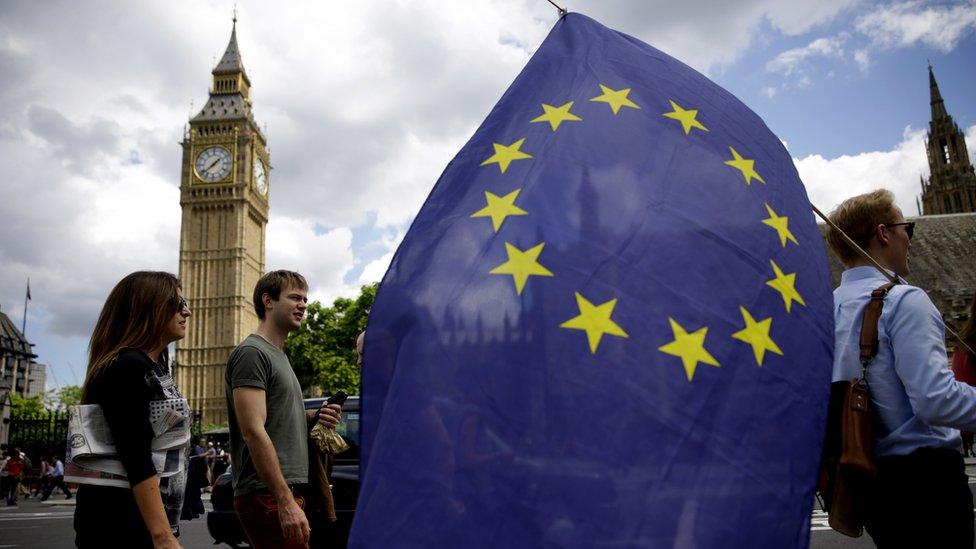Nicola Sturgeon says MSPs at Holyrood could refuse Brexit consent
- Published
Nicola Sturgeon: Scotland could try to block Brexit
Scotland's First Minister Nicola Sturgeon has told the BBC that Holyrood could try to block the UK's exit from the EU.
She was speaking following a referendum on Thursday which saw Britain vote by 52% to 48% to leave Europe.
However, in Scotland the picture was different with 62% backing Remain and 38% wanting to go.
SNP leader Ms Sturgeon said that "of course" she would ask MSPs to refuse to give their "legislative consent".
The leader of the Scottish Conservatives, Ruth Davidson, insisted the Edinburgh parliament did not have the required authority to block Brexit.
In an interview with the BBC's Sunday Politics Scotland programme Ms Sturgeon was asked what the Scottish Parliament would do now.
Ms Sturgeon, whose party has 63 of the 129 Holyrood seats, said: "The issue you are talking about is would there have to be a legislative consent motion or motions for the legislation that extricates the UK from the European Union?
"Looking at it from a logical perspective, I find it hard to believe that there wouldn't be that requirement - I suspect that the UK government will take a very different view on that and we'll have to see where that discussion ends up."

Could Scotland block Brexit?
By BBC Scotland's political editor Brian Taylor
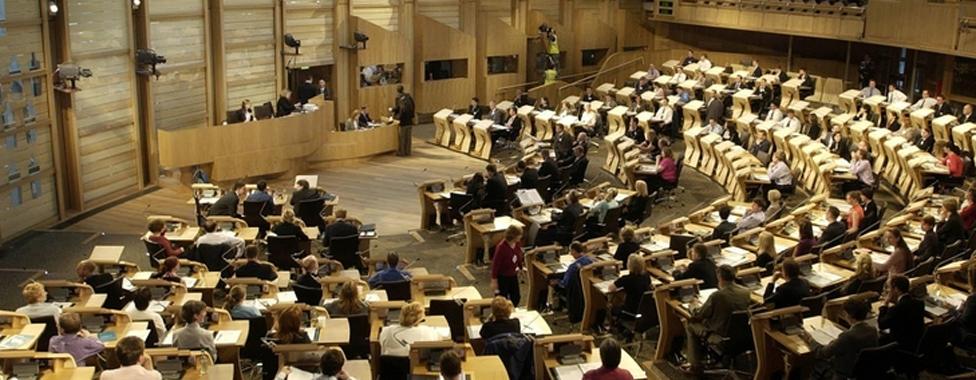
It could be argued - it is already being argued - that, if it came to a constitutional battle, Westminster would have the final say. Holyrood might withhold consent for the legislative moves to implement Brexit.
Westminster might note such a verdict, no doubt with polite gratitude - then proceed to implement Brexit, exercising its over-riding sovereignty.
Would that be wise? Would it be politically smart? Those are different questions, to discuss should this issue arise for real.
To be clear, Nicola Sturgeon is not personally making a big deal of this. She is not issuing scatter-gun threats.
She is attempting to remain calm, adopting the persona of one of the few serving leaders in these islands not resigning or under pressure to resign.
To be clear, further, she did not float the issue of a "veto" on Friday in her formal response. It emerged today in reply to decidedly adept questioning from my estimable colleague, Gordon Brewer.

When Ms Sturgeon was asked by presenter Gordon Brewer whether she would consider asking the parliament not to back such a motion of legislative consent she replied "of course".
She added: "If the Scottish Parliament was judging this on the basis of what's right for Scotland then the option of saying look we're not to vote for something that's against Scotland's interest, of course that's got to be on the table."
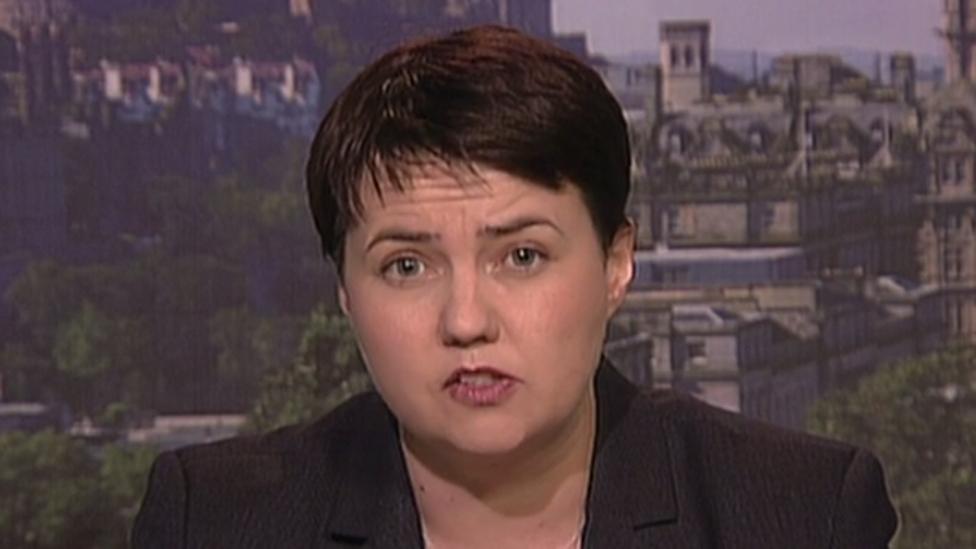
Scottish Conservative leader Ruth Davidson said Holyrood did not have the authority to stop Brexit
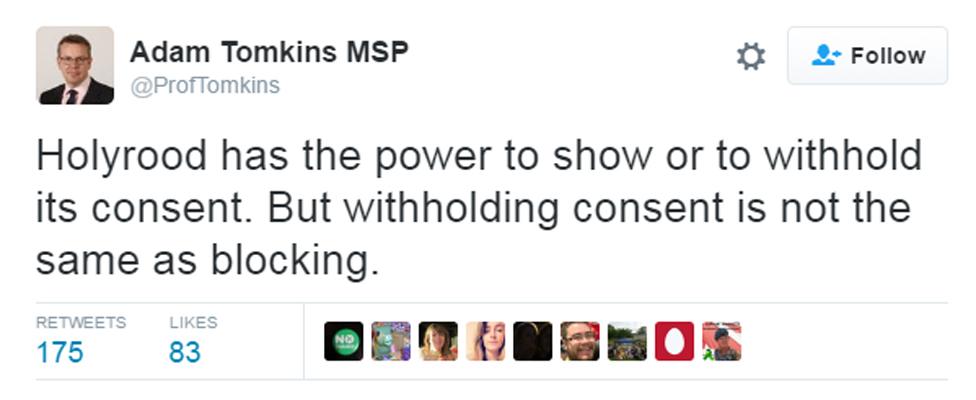
Ms Davidson said that the advice she had taken "suggests this is not within the power of Holyrood".
Constitutional law expert and Conservative MSP Adam Tomkins tweeted that Holyrood had no power to veto the UK's withdrawal.
Mr Tomkins - who backed the Remain side of the referendum campaign - said that while Holyrood had the power to withhold consent, that was not the same as blocking.
PM plans to go
Earlier on Sunday, Ms Sturgeon said that she and her colleagues would begin talking to Brussels officials next week about Scotland remaining in the EU.
The day after the full result was known, the Scottish leader confirmed that a second Scottish independence referendum was back on the table.
In September 2014, people in Scotland voted by 55% to 45% to stay a part of the UK.
Following the UK's decision on 23 June to leave the EU, Prime Minister David Cameron has announced his intention to resign and a number of Labour shadow cabinet members have quit - with more resignations expected - in protest at Jeremy Corbyn's leadership over the EU referendum.
- Published26 June 2016
- Published19 June 2016
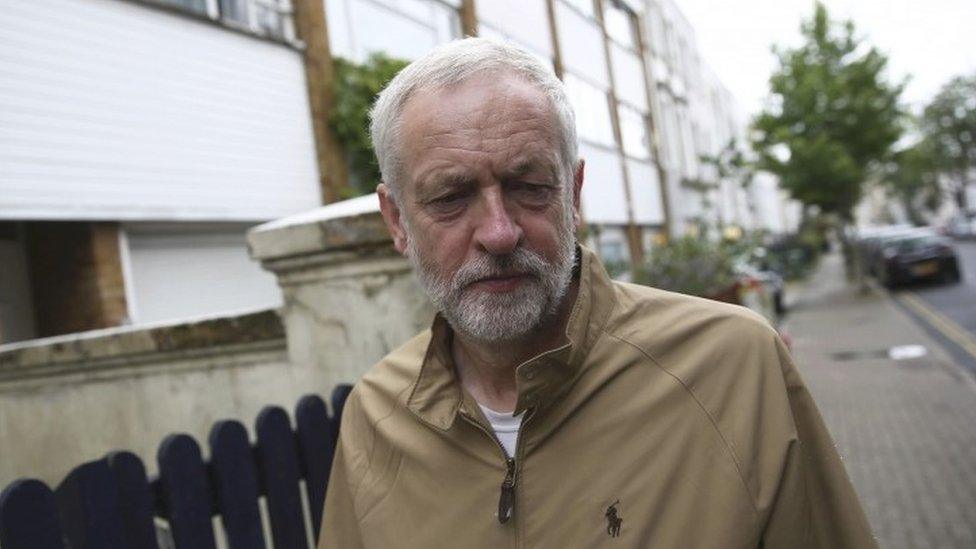
- Published26 June 2016
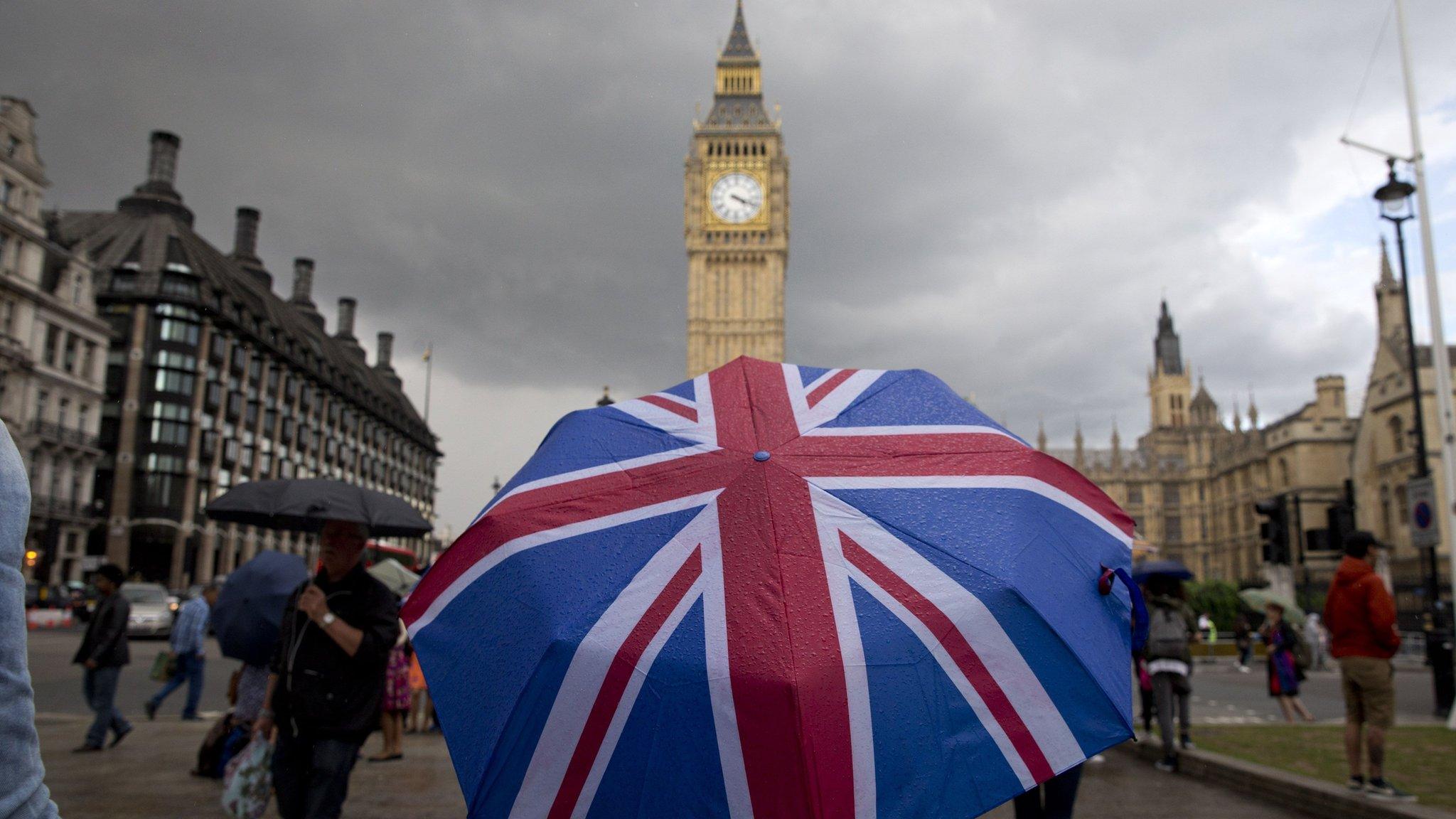
- Published26 June 2016
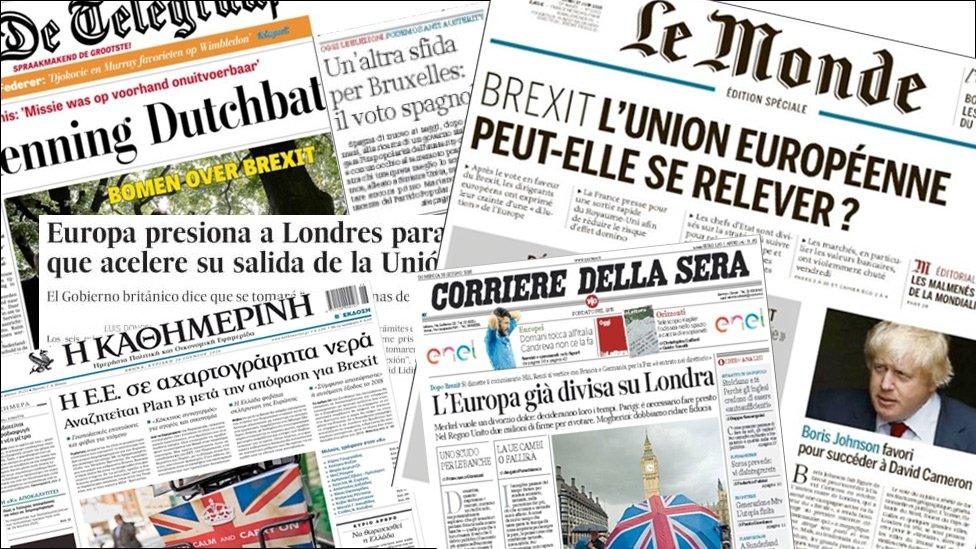
- Published26 June 2016
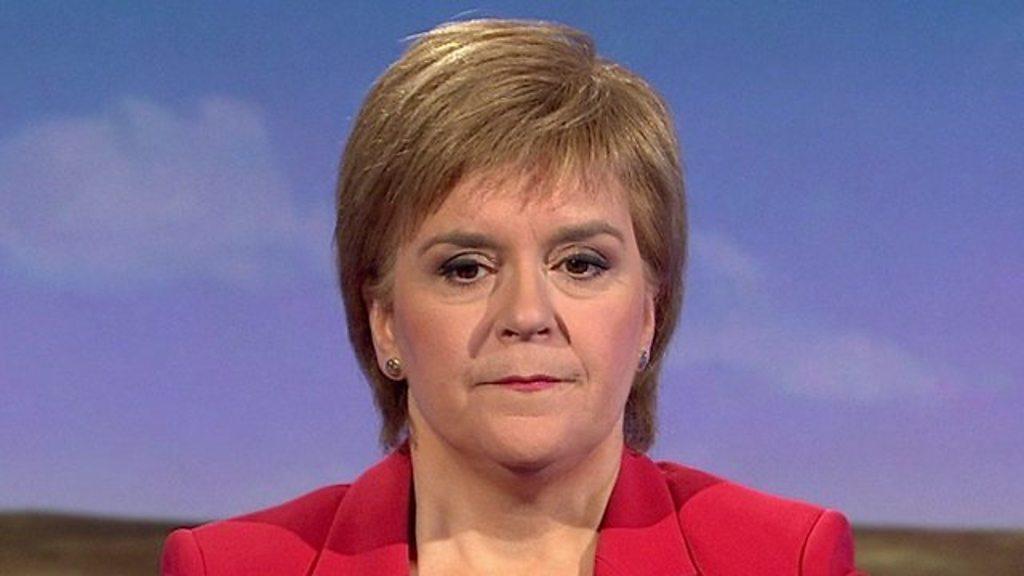
- Published27 June 2016
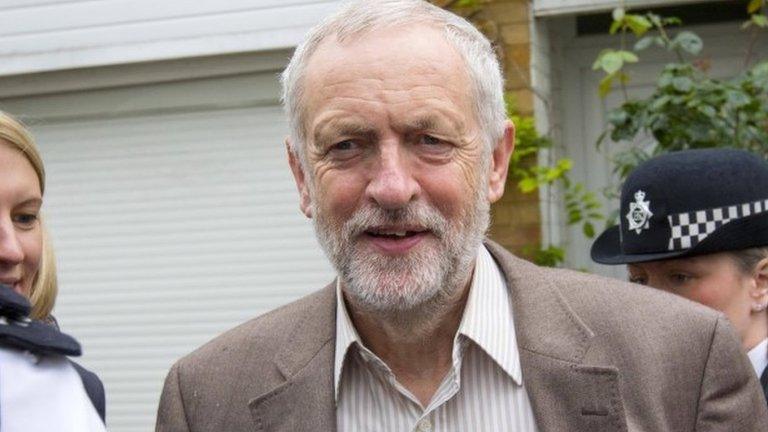
- Published2 September 2016
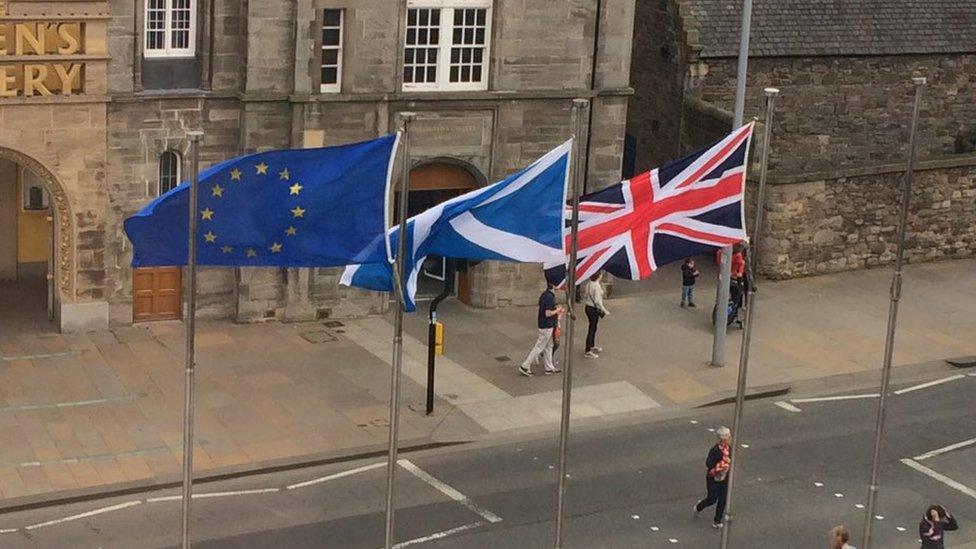
- Published25 June 2016
